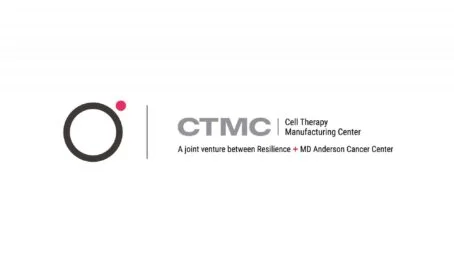First successful CAR-T treatment for muscle inflammation
University Hospital Erlangen in Germany is the first in the world to use CAR–T cell therapy to successfully treat a patient suffering from a severe case of muscle inflammation (myositis). Six months following CAR–T cell treatment the patient had fully recovered from myositis and ceased all immunosuppressive medicine.
The breakthrough is significant for the future treatment of autoimmune inflammatory muscle diseases, which can be fatal if not diagnosed early or if patients fail to respond to immunosuppressive medicines.
Via European Pharmaceutical Review
Read the full article here
Metabolically labeled CAR-T cells join the fight against cancer
Scientists at Harvard University’s Wyss Institute have developed a novel metabolic labeling technology that can enhance the therapeutic potential of T cells. By ‘tagging’ the surface of T cells with cytokines, the team has combined the anti-tumor action of T cells with cytokines’ ability to stimulate the immune system.
Although adaptive T-cell therapies like CAR-T cell therapy have demonstrated spectacular results for the treatment of blood cancers, this success has not yet been replicated with solid tumors. This novel cytokine-tethered approach significantly inhibited the growth of solid melanoma tumors and boosted the efficacy of T-cells.
Via Wyss Institute
Read the full article here
Kite releases pivotal Yescarta® Phase III study results
Kite Pharma has released data from its pivotal phase III study of CAR-T therapy Yescarta®. The therapy is the “first and only treatment in over 30 years to show statistically significant improvement in overall survival for initial treatment of relapsed/refractory large B-cell lymphoma (R/R LBCL) versus historical standard of care.”
The ZUMA-7 study is the first and largest Phase III study of any CAR-T cell therapy, with the longest follow-up period. The data from this landmark trial led to the therapy being approved by NICE earlier this year, bringing this life-changing therapy even closer to patients.
High production costs are limiting patient access to innovative cell and gene therapies
Cell and gene therapies are expensive. According to the Institute for Clinical and Economic Review (ICER), the average cost of gene therapy is $1-2 million per dose and $1 million for cell therapy. If these therapies cannot be produced affordably, their potential will not be realized and patient access will be hindered.
A new study suggests a two-pronged approach could prevent the ‘economic valley of death’ for CGT: 1) optimized manufacturing methods and 2) Increased production capacity throughout the CGT industry.
Via GenEngNews
Read the full article here
How Do Cell & Gene Therapy Requirements Differ Between FDA & EMA?
To date, the FDA has approved 27 cell and gene therapies (CGT) and the European Medicines Agency (EMA) has approved 24. While the FDA and EMA have differences in terminology and submission processes for CGT approval, sponsors face similar challenges when obtaining approval.
But approval is just one part of the process. Enabling patient access is complex, and requires looking at many other factors including geography and cost, as well as scaled-up manufacturing.
Via Cell & Gene
Read the full article here


